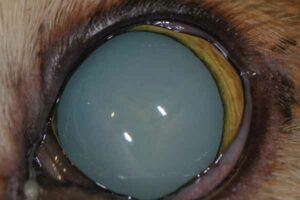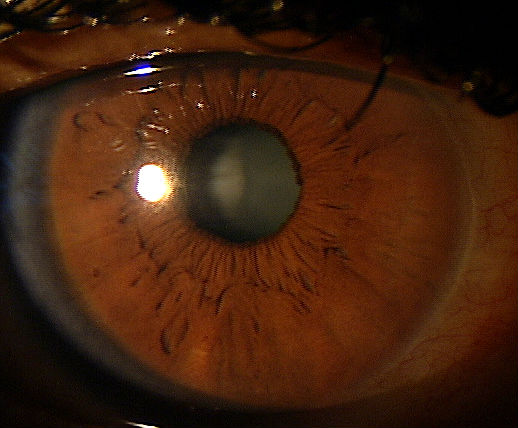When you have early cataracts starting to develop, it can be a scary thing to experience. You might notice that your vision is foggy or blurry sometimes and when you see the doctor they will diagnose you with incipient cataracts. The good news is that there are treatments available for this condition and we’ll go into the details of how it’s treated in this blog post!
Contents
What is an Incipient Cataract?

An incipient cataract is a clouding of the eye’s natural lens, which lies behind the iris and pupil. The lens helps focus light on the retina — the nerve tissue at the back of the eye that converts light into electrical impulses that are sent to the brain and then interpreted as images.
Most cataracts develop slowly and don’t interfere with a vision early on. An incipient cataract, however, is a small cataract that may cause some blurred vision. Incipient cataracts are usually diagnosed during a comprehensive eye exam.
Different Types Of Incipient Cataracts
There are several types of incipient cataracts, including:
• Cortical cataracts,
which form on the outer edges of the lens. These are often difficult to detect in their early stages.
• Polarized fight cataracts, which form near the center of the lens. These can cause glare and halos around lights.
• Nuclear sclerosis, or yellowing of the central part of the lens. This type of incipient cataract is common in older adults.
Causes And Symptoms
Common complaints related to cataracts include blurry vision, difficulty reading in dim lights, poor vision at night, glare and halos around lights, and sometimes double vision. Other signs of cataracts may be apparent if you experience frequent changes in your prescription or if you’re able to read without reading glasses after the age of 55.
Cataracts can happen for a variety of reasons: mistreatment of the eye, exposure to heat or radiation, or inherited factors. However, most cataracts are called senile cataracts which are normal consequences of aging in the human body.
Blurred or dim vision is often the first symptom, especially in regards to older adults, who may experience a need for brighter illumination or need to hold things close to their eyes. Continued cloudy lens changes may also lead to double vision. If any of these symptoms are found, consult an ophthalmologist immediately.
The human eye’s lens is made up of mostly proteins and fibers. When they break down, the lens becomes cloudy and a cataract can form. Some inherited genetic disorders that cause other health problems can also increase your risk of cataracts.
How to Treat A Incipient Cataract?
Cataracts are a common condition that affects millions of Americans. While cataracts can develop at any age, they are most commonly seen in older adults. Cataracts occur when the lens of the eye becomes cloudy or opaque, which can cause blurred vision.
There are several treatment options available for cataracts, depending on the severity of the condition. In some cases, glasses or contact lenses may be all that is needed to improve vision. For more advanced cataracts, surgery may be necessary to remove the cloudy lens and replace it with a clear artificial lens.
The surgery can be carried out at any stage of the cataract process. You don’t need to wait for your cataract to grow or cause problems before having it removed. Most people choose to have their surgery when the change in vision starts to affect them in their everyday life.
If you think you may have a cataract, it is important to see an eye doctor for a complete examination. Only an eye doctor can determine if you have a cataract and what treatment option is best for you. If you have cataracts and are finding it difficult to live your life normally, your doctor might suggest cataract surgery. If a cataract has interfered with the treatment of another eye problem, surgery is sometimes recommended.
Prevention
One of the best ways to prevent incipient cataracts is to wear sunglasses or other protective eyewear when outdoors. UV-blocking sunglasses can help protect your eyes from the harmful effects of ultraviolet (UV) radiation.
It’s also important to have regular eye exams so that your eye doctor can monitor your vision and look for any changes in the health of your eyes. If you have a family history of cataracts, you may need to begin having eye exams at an earlier age than people without this history.
Conclusion
If you have incipient cataracts, it is important to be monitored by an eye care professional. While there is no treatment for incipient cataracts, if they are left untreated, they will progress and can lead to vision loss. If you are experiencing any changes in your vision, make sure to schedule an appointment with your eye doctor so that you can be properly diagnosed and treated.
Cataract surgery is a safe and painless procedure. At MantraCare we have a team of experienced eye surgeons, who will be happy to answer any questions on cataract surgery. Call us at +91-9711116605 for any inquiries.
